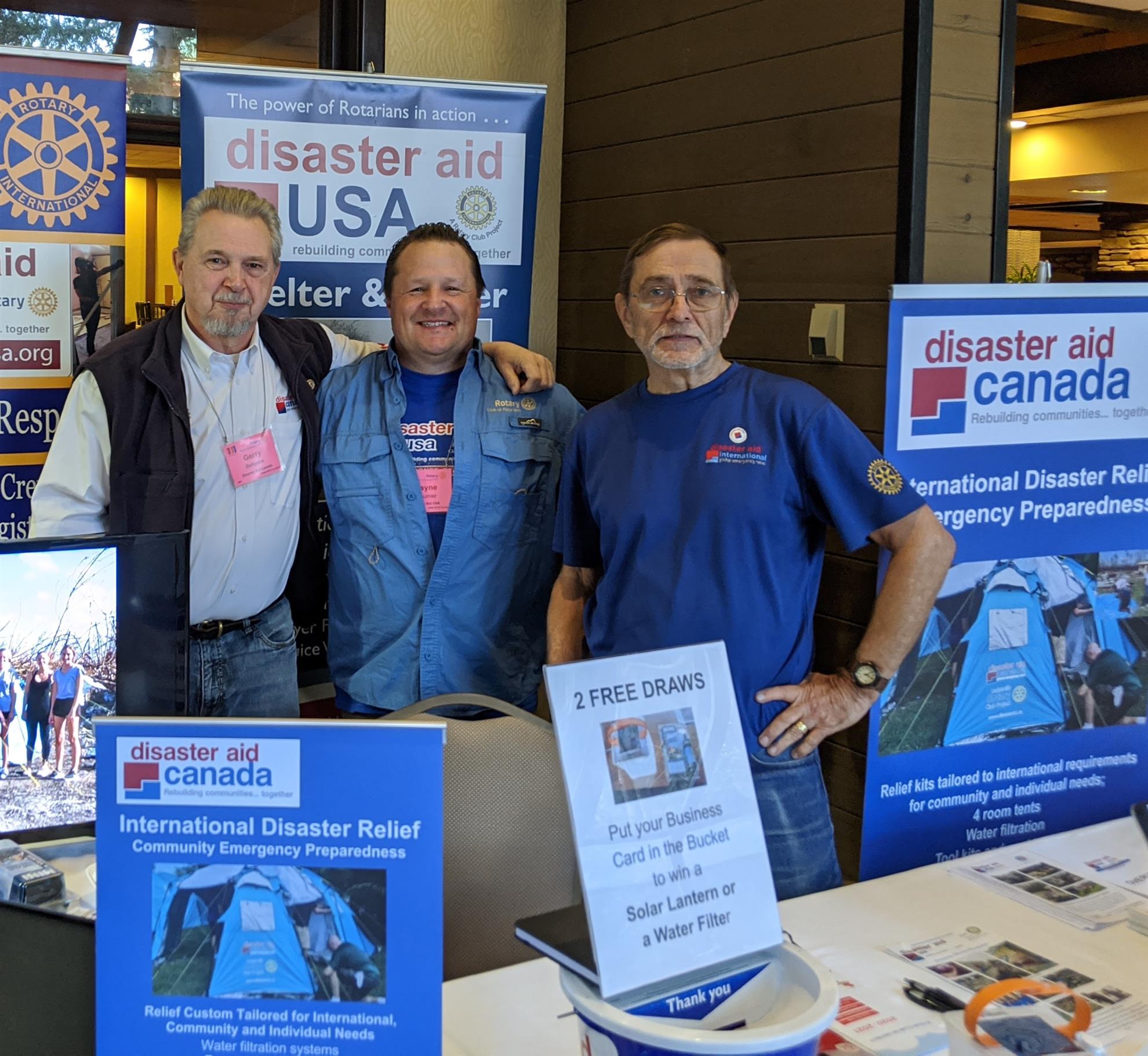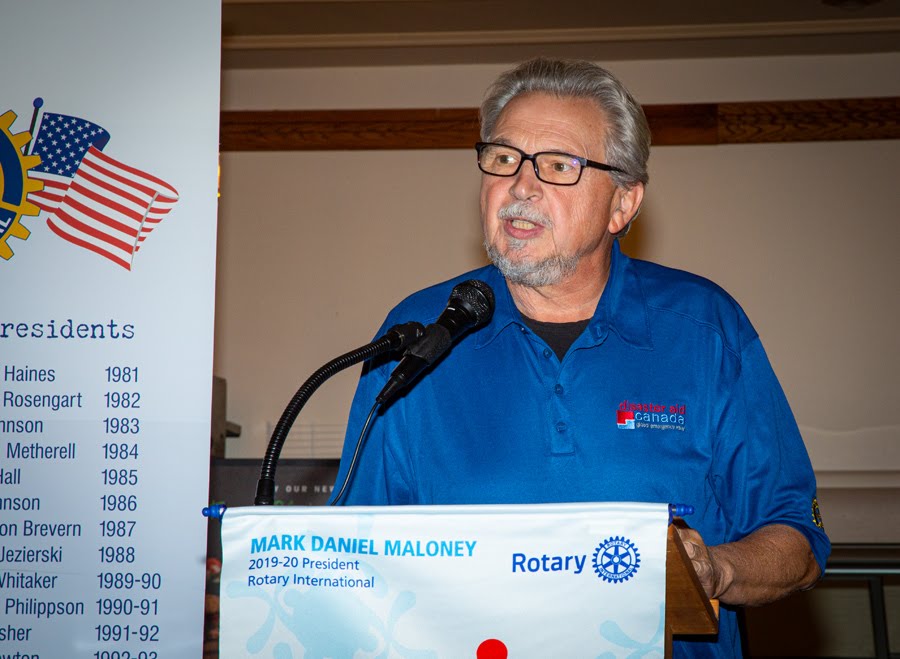Disaster Aid Canada Pivots to Online Club Presentations
June 21, 2020
Gerry Beltgens, the Executive Director of Disaster Aid Canada enjoys meeting with Rotary Clubs and Rotarians in person. In March of 2020 he was booked solid with 3 upcoming District Conferences, the International Conference in Hawaii and face to face presentations with another 6 Rotary Clubs. He was planning a trip to Ontario to meet with Clubs in the Greater Toronto Region in late April. That all came to a grinding halt when COVID-19 tore its way into public life.
Disaster Aid Canada Pivots to Online Club Presentations - Continued
June 21, 2020

June 21, 2020
Beltgens had just returned from a trip to Florida to attend the opening of his daughter’s third bakery and was one of the last to get back across the border before the lockdown.
“When we saw the conferences being cancelled one after the other and Clubs moving away from having speakers it was a real blow to us,” said Beltgens. “We rely on being out front of the public to create awareness and raise funds for our local and international relief projects. I admit I was quite depressed by the situation. Here we are entering one of the biggest disasters of our time, people will need our support and our normal methods of contact and communication were completely disrupted.”
It did not take long however for Beltgens to see the opportunity that the lockdown would create. He had been working with personal computer systems since 1983 and had owned a computer training company in the 90s in Vancouver. He had also studied for and received a Masters Degree in Leadership and Training from Royal Roads University through a predominantly online program in 2004.
If Disaster Aid Canada could not visit the Clubs in person then it was obvious that the presentation needed to fit into the new reality of Zoom and Microsoft Team presentations. Not only Club presentations but conferences with people and organisations involved in the Disaster Relief programs that DAC was continuing to provide.
Beltgens and his team reviewed the materials that he normally used and set about creating a presentation that would provide a new perspective on how DAC works with Rotary Clubs around the world to provide disaster and emergency relief programs. It now includes a brief history on Disaster Relief programs, an overview on Disaster Aid International and then a discussion on the previous years projects with a report on how the money that clubs donate gets spent.
“The presentation is not an ask for money but to create awareness of the organisation and our work. If the Rotary Club would like to support Disaster Aid canada after that then I have done a good job,” said Beltgens. He has made the presentation many times across western Canada in the past 3 months and is looking forward to reaching many more Clubs across the rest of Canada.
The 15 to 20 minute presentation is a combination of video, photographs, slides and a talk to go along with it. There is still usually time for questions at the end. The presentation is flexible and adjusts to the most current crisis and can also focus on areas that the club being presented to has supported recently.
 DAC is also working on another presentation on an Emergency Preparedness program that DAC has set up with the Rotary Club of Sooke, Rotary Club of Ladysmith and also a large Condominium complex in Victoria BC.
DAC is also working on another presentation on an Emergency Preparedness program that DAC has set up with the Rotary Club of Sooke, Rotary Club of Ladysmith and also a large Condominium complex in Victoria BC.Disaster Aid Canada is presently focussed on preventing starvation among the marginalised Mayan villagers in the Lake Atitlan region of Guatemala, has just completed a flood relief program in Fort McMurray with the local Rotary Clubs and District, provided financial and material relief for Australians impacted by the bushfires and made a major contribution to providing shelter and comfort materials to the people devastated by Hurricane Dorain in the Bahamas.
If your Rotary Club or District is looking for a speaker for an interesting and hopefully entertaining presentation, then contact gbeltgens@disasteraid.ca to book a time.